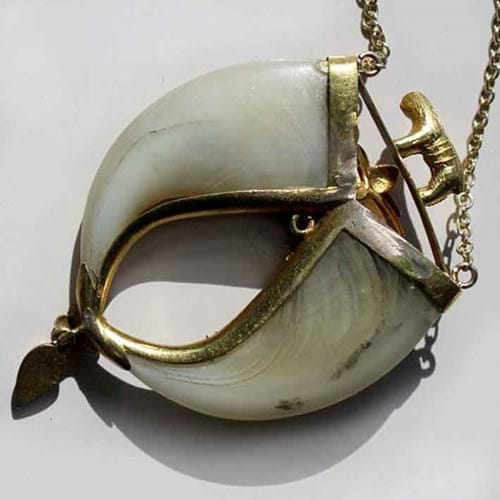
Andrew Banks, a partner at law firm StoneKing who defended Annina Vogel at Westminster Magistrates' Court on June 18, told ATG: "It was very unfair that the prosecution pursued the case, given that the rule changes made in 2013 were not publicised - something that continues to this day. Ignorance of the law is, of course, no excuse, but in this case it is strong mitigation."
In a much-publicised case, Annina Vogel pleaded guilty at the magistrates' court on June 18 to offering for sale Victorian gold and silver-mounted jewellery containing the claws of protected species including tiger, lynxes, caracals and servals. Since May 2013, when EU interpretation guidance was changed, it has been illegal to sell big cat claw jewellery.
Wildlife crime police had visited the Annina Vogel concession at Liberty department store in December 2013, after a complaint by a customer. It was found she had already removed all the cats' claws from display upon advice from Trading Standards, but officers seized 11 items which were later analysed by a government inspector.
Unclear Rules
Ms Vogel told the court that she had no idea what she was doing was illegal, given that the items were antiques.
Banks further argued that, by CITES management authorities' own admission, the rules on this subject published two years ago were "unclear", "misleading" and not available for viewing in December 2013 when this issue first came to light.
The press release posted on the government website on May 9, 2013 soon disappeared to be replaced by August 20 with a statement declaring the guidance to be "confusing and in some cases misleading". DEFRA licensing unit The Animal and Plant Health Agency in Bristol promised to publish a revised guide as soon as possible.
"Two years later and there is no new guidance," said Mr Banks.
The only source of information regarding the change in law was the articles ATG published at the time.
A police officer brandished two copies of the weekly journal in court.
However, despite sympathy from the court, the prosecution continued on the grounds of strict liability - Vogel had offered tiger claw jewellery for sale - and on the understanding that ignorance of the law is no defence. While Banks believed his client could have tested the case, she chose the expedient option to pay a £2000 fine, part costs of £85 and a victim's surcharge of £120.
Chair of the bench Diane Lenna said: "We have acknowledged your early guilty plea. We accept that they were antique in origin and we accept that the government guidance was unclear and you withdrew the items for sale immediately."
Animal Health licensing officer Matthew Wright told ATG there had been a delay in revising guidelines for the department's new website. He urged readers to contact the department with their questions and suggestions as to where clarification is required.





